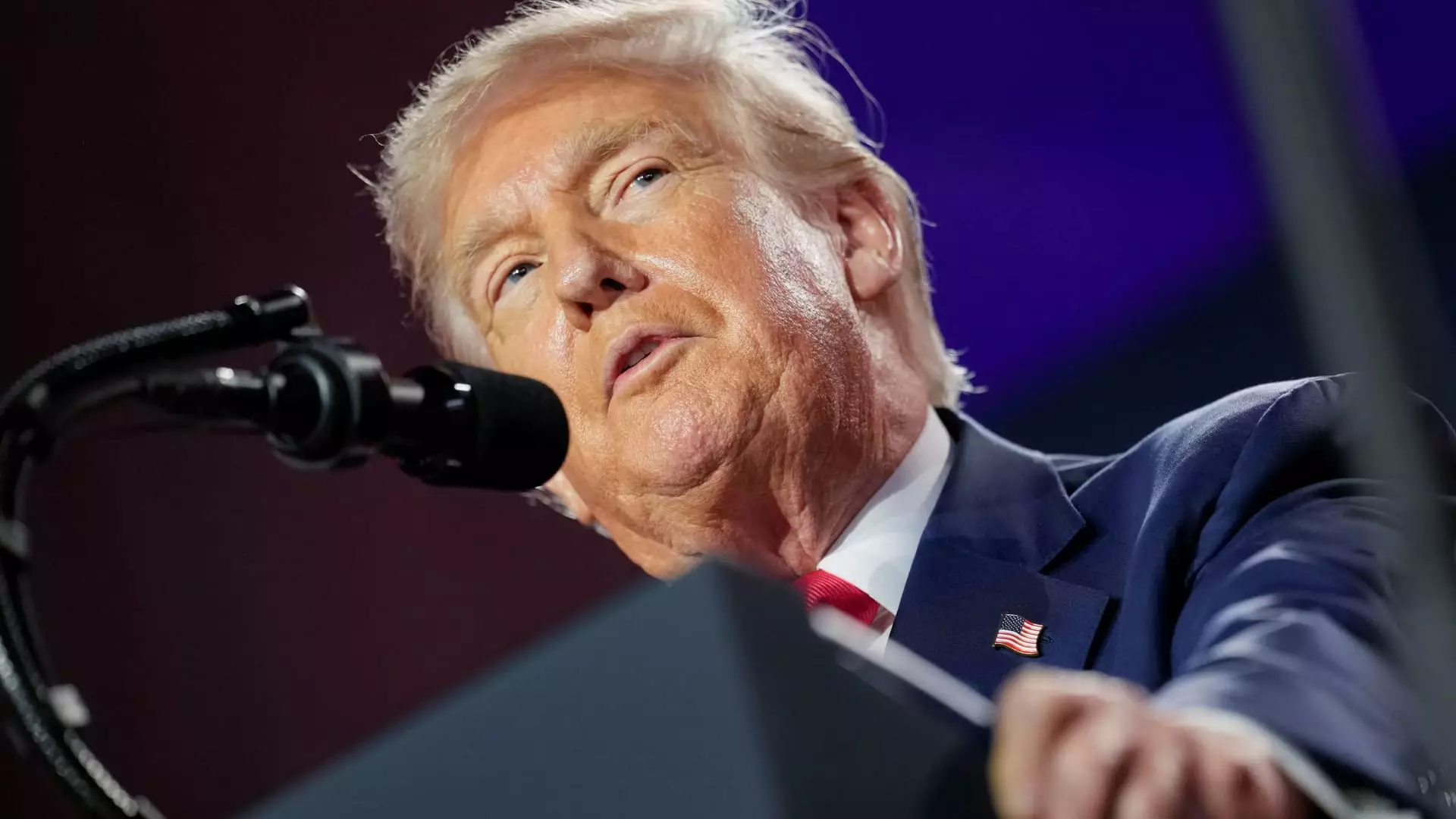In an extraordinary display of political grandstanding, President Donald Trump’s recent visit to the Federal Reserve headquarters signals more than just curiosity about a costly renovation. It embodies a troubling trend: the politicization of America’s central bank. Traditionally, the Federal Reserve is insulated from political whims to maintain economic stability and credibility. Trump’s decision to show up in person, flanked by allies and critics alike, transforms a normally apolitical institution into a pawn in partisan battles. This move is fraught with peril. It undermines the independence that has historically been the bulwark of effective monetary policy, risking market destabilization and eroding public trust in vital economic governance.
Rather than focusing on sound economic policies rooted in data and expertise, the president’s theatrics seem driven by personal grievances and a desire to flex political muscle. The spectacle diminishes the Fed’s stature, threatening its ability to make unbiased decisions aimed at long-term economic stability. It’s a blatant misuse of presidential power that endangers the careful balance between government institutions and economic health. Such behavior adds fuel to the dangerous narrative that financial policy should be subject to political influence, a path that historically leads to volatility and loss of confidence in both the economy and governance.
The Real Cost of Politicizing the Federal Reserve
At the core of Trump’s rhetoric is a misguided belief that interest rates are a political tool that can—or should—be directly manipulated to serve short-term electoral interests. His demands for an immediate rate cut and his public disparagement of Chair Jerome Powell reveal a fundamental misunderstanding of how monetary policy functions. When political figures pressure independent institutions for populist gains, the consequences are profound: increased market uncertainty, higher borrowing costs, and a destabilized economy vulnerable to manipulative forces.
This obsession with managing the interest rate for electoral benefit neglects the broader perspective of economic resilience. The Federal Reserve’s independence is critical because it shields monetary policy from partisan cycles, allowing it to respond to economic signals objectively. Politicizing this process risks turning the nation’s economic foundation into a playground for political theater. Furthermore, the spectacle around the feuding over the cost overruns of the Fed’s building projects, which are paltry compared to the economic stakes at play, detracts from more substantive issues—like inflation, employment, and financial stability—that demand expert attention, not partisan snarling.
The Erosion of Institutional Integrity and the Dangers Ahead
President Trump’s deliberate efforts to publicly undermine the Fed’s credibility threaten foundational principles that sustain American economic strength. By casting doubt on Powell’s competence and integrity, and by publicly calling for his resignation, Trump undermines the institutional independence that has helped the U.S. navigate economic crises successfully for decades. The concern isn’t merely about personality conflicts; it’s about the long-term health of America’s monetary framework.
Constant interference risks creating a volatile environment where markets become jittery, sensitive primarily to political noise rather than economic fundamentals. This is especially precarious at a time when the global economy faces numerous challenges, from inflationary pressures to geopolitical tensions. A central bank free from political constraints is essential for maintaining credibility and stabilizing expectations. When presidents treat the Fed as a political punching bag, they threaten to undo years of progress toward a stable monetary policy environment.
In essence, the spectacle surrounding the Fed’s renovation budget and Powell’s position reflect a broader ideological struggle: should economic policy be managed by technocrats insulated from politics, or should it serve the partisan ambitions of those in power? The current course under Trump risks pushing the U.S. toward a dangerous precedent where economic decisions are driven by personal vendettas rather than data-driven analysis. This approach will ultimately harm ordinary Americans—those who rely on stable prices, sustainable interest rates, and the rule of law to secure their futures against the chaos of political gamesmanship.

Leave a Reply